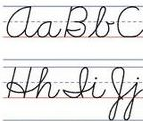Today’s word is not just a word, it’s a kind of PSA. The term is Dutch reach. It might be known to many people already, but I just saw it on Twitter.
Dutch reach is a way to open your car door (from inside) by using the far hand to reach over and grab the handle. So if you’re on the (American) driver’s side, you reach over with your right hand to open the door. Obviously this is not intuitive; people normally open a car door using the hand that’s closest to that door.
 The point is to more or less force you to look behind you. You do this to see if there are any bicyclists coming up behind you, and to help you avoid opening the door into their path, known to bicyclists as being doored, which can really injure a bicyclist going at speed. You can read more at a site devoted to teaching this technique.
The point is to more or less force you to look behind you. You do this to see if there are any bicyclists coming up behind you, and to help you avoid opening the door into their path, known to bicyclists as being doored, which can really injure a bicyclist going at speed. You can read more at a site devoted to teaching this technique.
I think I found this term interesting because the adjective Dutch in English was, historically speaking, sometimes used in “opprobrious or derisive” ways, to quote the OED. Dutch treat, Dutch uncle, Dutch courage, Dutch auction (see comment by Eric!): these are not terms of admiration. For example, a Dutch treat is when you pay your own way, meaning it’s no treat at all. This is a linguistic legacy of the great British-Dutch rivalry of the 1600s. (Remember that New York was originally New Amsterdam.)
But Dutch reach is a term that, if not necessarily admiring, is at least neutral. It’s a nod to Holland’s famously bicycle-friendly culture and, in this case, a Dutch that’s worth adopting.
Origins. The other day I was reading about the history of type and the author mentioned that some early typefaces were designed to emulate handwriting, or cursive writing. Interestingly, cursive has basically only one meaning: flowing handwriting, or type intended to look like it.
 Take a moment to consider what the word cursive means and where we got it. Ready? We seem to have gotten it from the Latin word cursivus, meaning “flowing.” So far, so obvious. The fun part is that the Latin word is in turn based on the past form of the word meaning “to run” (correr in Spanish). So cursive handwriting is writing that runs, which I suppose is apt when compared to block printing (or carving in stone).
Take a moment to consider what the word cursive means and where we got it. Ready? We seem to have gotten it from the Latin word cursivus, meaning “flowing.” So far, so obvious. The fun part is that the Latin word is in turn based on the past form of the word meaning “to run” (correr in Spanish). So cursive handwriting is writing that runs, which I suppose is apt when compared to block printing (or carving in stone).
As with so many words with classical roots, cursive has many cousins. A short list includes courier, corridor, carriage, curriculum, excursion, and intercourse. That’s a whole lot of running.
Bonus origin. Yesterday was Pi Day (3.14 in the American convention of month then day). Ever wonder why we use the term pi for the ratio of circumference to diameter? The Welsh mathematician William Jones apparently introduced the word in the early 1700s as short for "periphery," and it and the pi symbol (π) were popularized by Euler.
Like this? Read all the Friday words.
 |
|

 |
|
